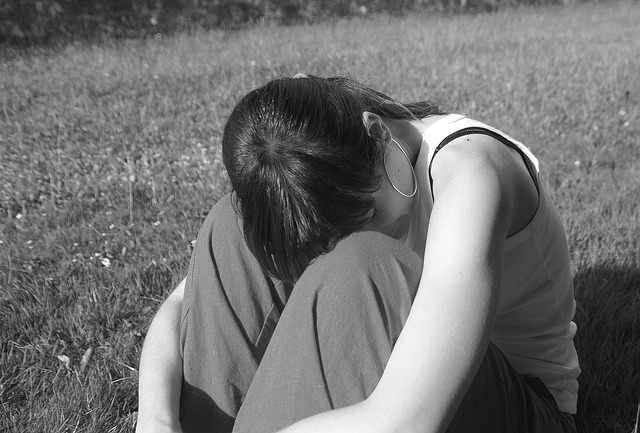- Calls to this hotline are currently being directed to Within Health, Fay or Eating Disorder Solutions
- Representatives are standing by 24/7 to help answer your questions
- All calls are confidential and HIPAA compliant
- There is no obligation or cost to call
- Eating Disorder Hope does not receive any commissions or fees dependent upon which provider you select
- Additional treatment providers are located on our directory or samhsa.gov
Eating Disorder Relapse: Five Steps to Regroup and Resume Recovery

Contributed by Canopy Cove
Relapse is treated as a “dirty word” in recovery circles, leading to the stigma that an individual that has an eating disorder relapse has failed in some way. This is utterly untrue.
Relapse rates are quite high in eating disorders, with anywhere between 22 to 63% of individuals struggling experience a relapse once during their recovery journey [1].
That is a lot of people feeling ashamed and guilty because they believe relapse indicates a failure on their part when it doesn’t. Relapse can be a valuable and insightful part of the recovery journey and does not have to keep you down for long.
Acknowledge Your Eating Disorder Relapse
Acknowledging a relapse can be like admitting to having an eating disorder all over again.
The voice of your ED is happy you are reunited and trying hard to convince you that you need it, that this is what is best for you, and that you shouldn’t tell anyone you’re back to your disordered behaviors.
This negativity grows in the darkness but, once spoken and brought to light, doesn’t seem so scary anymore.
You’re reminded that the voice of your ED is actually scared and misguided and that you have, within you, the power to pursue another life.
Forgive Yourself in an Eating Disorder Relapse
An individual’s first instinct, when they relapse, is to shame themselves, beating themselves up for “falling backward” and “having to start all over again.” Who does this serve? No one.
In fact, it often fuels further relapse, making you think “I might as well just keep going, there’s no turning back now.”
Skip the guilt-trip and, instead, remind yourself that relapse is a part of the recovery journey.
Also, remember that you are not “starting back at square one.” You have come incredibly far since then and have learned and grown so much, and one relapse won’t take that away from you.
Reach Out
You should not have to go through any part of your recovery journey alone, including relapse.
You need your support system and treatment team more than ever post-relapse, to love you unconditionally, to speak to you kindly, and to help bolster the strength and courage you have within you to overcome.
Don’t be ashamed to acknowledge your struggle if you have relapsed. Your support system knows that the road to recovery may have a few bumps in it and has agreed to be there for you no matter what.
Take Stock
Relapse is not a completely wasted experience, and it doesn’t mean an end to your recovery journey. In fact, it can be a useful part of recovery.
Post-relapse is an excellent time to ask yourself Who, What, and Where. Who was I with? What was I doing/feeling? Where Was I?
The answers to these questions can give valuable insight to your “recovery blind spots,” IE those people, places, and things you hadn’t considered triggering before and can look out for in the future.
Post-relapse can also be a pivotal moment to ask yourself the even tougher question: is my current recovery strategy effective?
Explore the relapse prevention and recovery skills you have been implementing and ask yourself if they are working. Do you need more tools in your tool belt? Do you need better or more consistent support? Is it time to consider more intensive treatment?
Relapse can make it feel as if your world has stopped, so, take this moment to pause on your own and take stock of where you want to go next and how you can get there.
Move Forward After Eating Disorder Relapse
 The concept of “moving forward” sounds simple when anyone who has relapsed knows it is anything but easy. This step is the culmination of all of those before it.
The concept of “moving forward” sounds simple when anyone who has relapsed knows it is anything but easy. This step is the culmination of all of those before it.
You have recognized that a relapse has happened, you have compassionately forgiven yourself, you have called on your social support to help you through, and you have taken stock of what went right and wrong in your relapse.
Now, whether you know how or not, it is time to move forward. We do not have to know all the answers or have an exact plan. Sometimes, it is enough to forgive ourselves, pick up with what we have, and take that first step back on the road to recovery.
Just like every epic journey in books, movies, television, and real-life, there will be ups-and-downs and highs-and-lows, and there is never a guarantee there are not more to come.
But, regardless of the challenges ahead, you are a recovery warrior, and you will face and overcome them bravely.
Resources:
[1] McFarlane, T. et al. (2008). Timing and prediction of relapse in a transdiagnostic eating disorder sample. International Journal of Eating Disorders, 41: 587-593.
About Our Sponsor:
Canopy Cove Eating Disorder Treatment Center is a leading residential Eating Disorder Treatment Center with 25 years’ experience treating adults and teens who are seeking lasting recovery from Anorexia, Bulimia, Binge Eating Disorder and other related eating disorders.
We are a licensed rehabilitative provider accredited by the Commission on Accreditation of Rehabilitation Facilities. Trusted and recommended by doctors and therapists throughout the country, our program provides clients with clinical excellence and compassionate care.
As one of the most experienced Eating Disorder Centers in the nation, we’ve developed a highly effective program that incorporates solid evidence-based therapies that have been shown to increase recovery rates.
- Each person we treat receives a customized treatment plan tailored to their specific needs.
- We increase recovery rates by simultaneously treating co-existing conditions such as anxiety, depression. (We also accept clients with an Eating Disorder and co-existing Diabetes).
- We provide family education and family therapy throughout the recovery process. (Offered by phone for out of town families).
Our Christian-based eating disorder treatment program warmly accepts all clients from various belief systems.
Get help now. Call 855-338-8620.
www.canopycove.com
info@CanopyCove.com
 About the Author:
About the Author:
Margot Rittenhouse, MS, PLPC, NCC is a therapist who is passionate about providing mental health support to all in need and has worked with clients with substance abuse issues, eating disorders, domestic violence victims, and offenders, and severely mentally ill youth.
As a freelance writer for Eating Disorder Hope and Addiction Hope and a mentor with MentorConnect, Margot is a passionate eating disorder advocate, committed to de-stigmatizing these illnesses while showing support for those struggling through mentoring, writing, and volunteering. Margot has a Master’s of Science in Clinical Mental Health Counseling from Johns Hopkins University.
The opinions and views of our guest contributors are shared to provide a broad perspective of eating disorders. These are not necessarily the views of Eating Disorder Hope, but an effort to offer a discussion of various issues by different concerned individuals.
We at Eating Disorder Hope understand that eating disorders result from a combination of environmental and genetic factors. If you or a loved one are suffering from an eating disorder, please know that there is hope for you, and seek immediate professional help.
Published on November 29, 2018.
Reviewed & Approved on November 29, 2018, by Jacquelyn Ekern MS, LPC
Published on EatingDisorderHope.com

The EatingDisorderHope.com editorial team comprises experienced writers, editors, and medical reviewers specializing in eating disorders, treatment, and mental and behavioral health.

